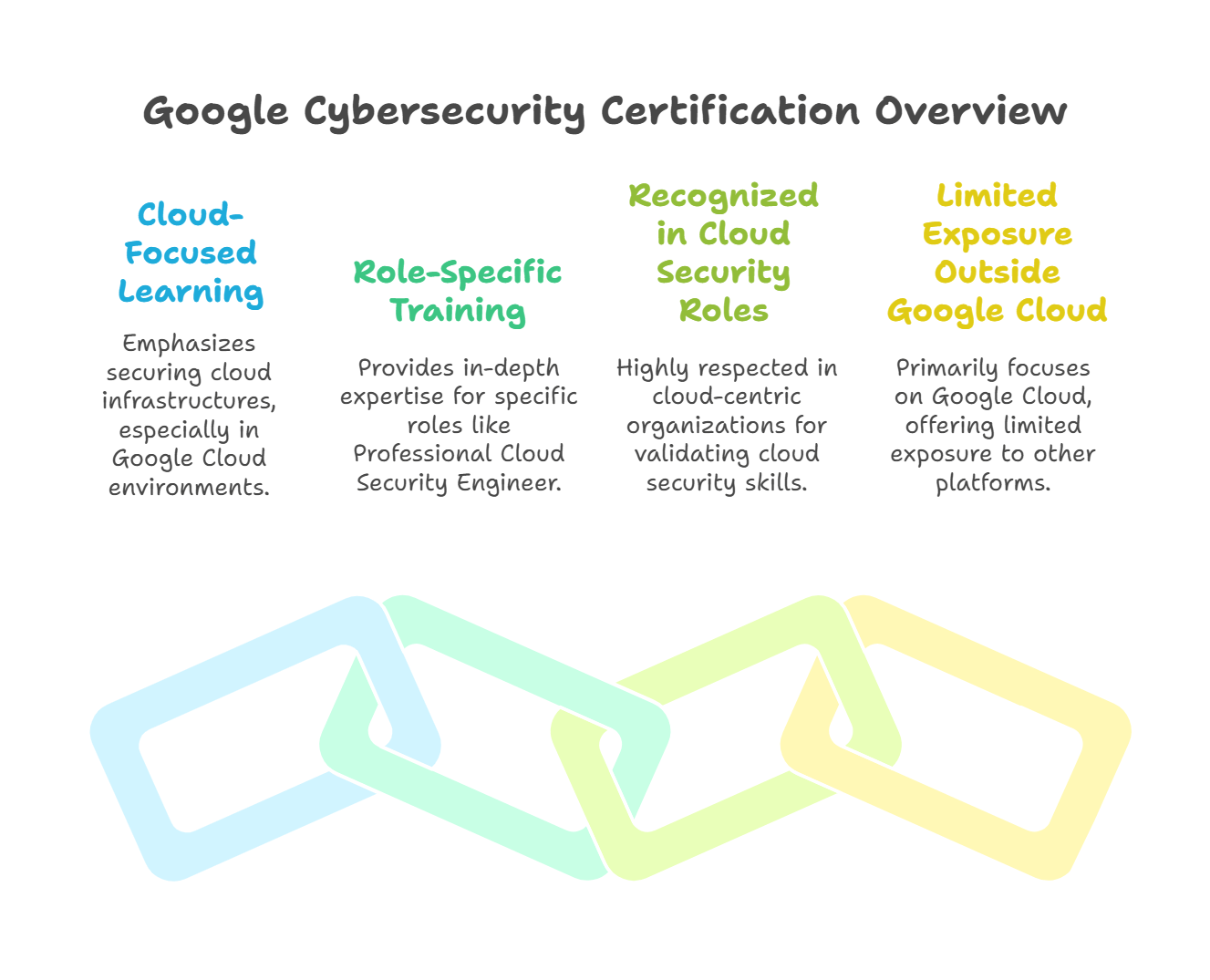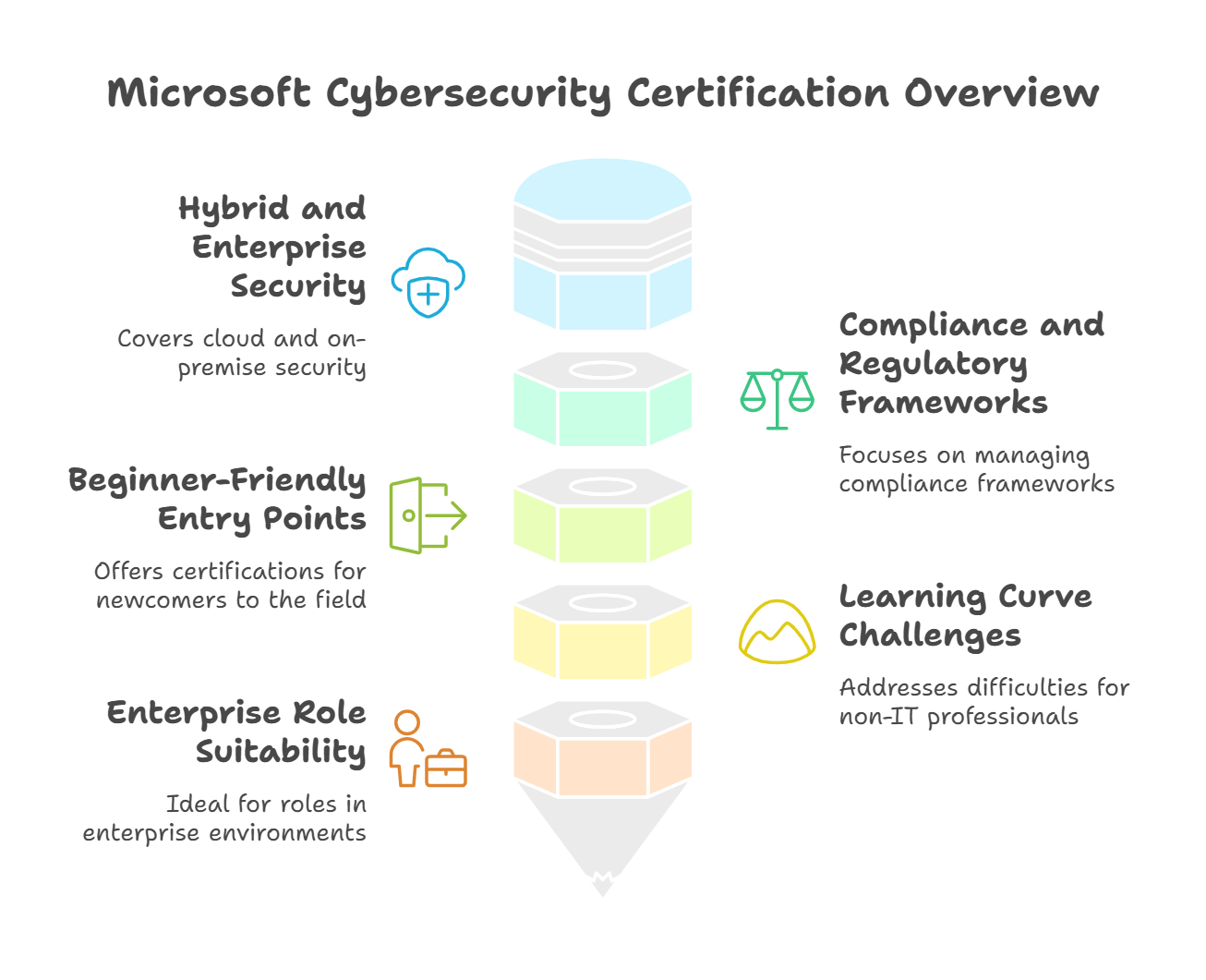Table of Contents
- The Importance of Cybersecurity Certifications
- Google Cybersecurity Certification
- Microsoft Cybersecurity Certification
- Google vs Microsoft Cybersecurity Certification: A Comparison
- Why ACSMI IoT Cybersecurity Certification Stands Out
- The Rising Demand for Cybersecurity in Space Technology
- Final Thoughts
- FAQs on Google vs Microsoft Cybersecurity Certification
The demand for cybersecurity professionals is higher than ever, and with cyber threats becoming more sophisticated, companies need skilled individuals to safeguard their data and infrastructure. As you embark on your journey in cybersecurity, choosing the right certification can be daunting, especially when it comes to Google vs Microsoft Cybersecurity Certification on Coursera. Both tech giants offer robust certification programs that can elevate your career. But which one should you choose? This comprehensive guide dives into the strengths, features, and career outcomes of both certifications to help you make an informed decision.
The Importance of Cybersecurity Certifications
Cybersecurity certifications are vital for professionals looking to build or advance their careers in the cybersecurity domain. They validate your technical expertise and ensure that you have the necessary skills to tackle complex security issues. Moreover, certifications increase your employability, enhance job prospects, and often come with higher salary potentials. Google and Microsoft certifications cater to different aspects of cybersecurity, and understanding their unique features can help you choose the right one for your goals.
Google Cybersecurity Certification
Google’s cybersecurity certifications are tailored for professionals looking to specialize in cloud-native security. These certifications are particularly valuable for individuals working with Google Cloud infrastructure, as they focus heavily on securing cloud environments, predictive intelligence, and machine learning tools. Google’s certifications provide an excellent foundation for those who want to focus on cutting-edge cloud security technologies.

Key Features of Google Certification
-
Cloud-Focused Learning
Google’s certifications focus on securing cloud infrastructures, especially within the Google Cloud environment. As businesses move toward cloud-first strategies, these certifications ensure that professionals are equipped to secure multi-cloud ecosystems effectively. Google also integrates artificial intelligence (AI) and machine learning (ML) tools into their certification programs, offering a modern approach to cybersecurity. -
Role-Specific Training
Certifications like Professional Cloud Security Engineer are designed to help learners gain in-depth expertise in specific roles. These certifications are great for professionals who want to specialize in cloud security and manage advanced cloud infrastructures. -
Recognized in Cloud Security Roles
Google’s cybersecurity certifications are highly respected in cloud-centric organizations. These certifications validate your ability to secure cloud environments and work with platforms like Google Cloud, making them highly beneficial for cloud engineers and security architects. -
Limited Exposure Outside Google Cloud
One limitation of Google certifications is that they primarily focus on Google Cloud, which means professionals may gain limited exposure to other platforms like Microsoft Azure or Amazon Web Services (AWS). For those working with other platforms, this could be a limitation in terms of platform-specific knowledge. -
Ideal for Cloud Engineers and Architects
Google’s certifications are best suited for cloud engineers, security architects, and IT professionals working in cloud-based organizations. If you are aiming to specialize in cloud security, this certification is a great choice.
Microsoft Cybersecurity Certification
Microsoft’s Cybersecurity Certification Organizations take a more broad-based approach, offering training for professionals working across hybrid systems, on-premise, and cloud environments. The Microsoft certifications are primarily focused on Azure, the company’s cloud platform, but they also extend into traditional enterprise systems. These certifications are perfect for individuals working in organizations that use hybrid models or multi-cloud environments.

Key Features of Microsoft Certification
-
Hybrid and Enterprise Security
Microsoft’s certifications offer coverage of both cloud-native and on-premise environments, making them highly relevant for organizations that rely on hybrid systems. This certification focuses on securing endpoints, compliance, and ensuring that enterprise systems are safeguarded from threats. Professionals are trained to handle both traditional infrastructure and cloud-based security, ensuring a holistic security approach. -
Focus on Compliance and Regulatory Frameworks
One of the strengths of Microsoft’s cybersecurity certification is its emphasis on regulatory compliance. Certifications like the Microsoft Certified: Security, Compliance, and Identity Fundamentals teach professionals to manage compliance frameworks like GDPR, NIST, and others. This makes Microsoft’s certifications highly suitable for professionals working in industries where compliance and data protection are critical. -
Beginner-Friendly Entry Points
Microsoft offers a range of beginner-friendly certifications like Security, Compliance, and Identity Fundamentals, which make it easy for individuals without prior cybersecurity experience to enter the field. These certifications offer a solid foundation in security principles, making it easier for professionals to transition into cybersecurity roles. -
Steep Learning Curve for Non-IT Professionals
One challenge with Microsoft’s certifications is the learning curve. If you don't already have a background in IT or systems administration, some of the certifications can be difficult to grasp. The learning process can be more complex compared to Google’s cloud-centric approach. -
Best Fit for Enterprise Roles
Microsoft certifications are ideal for professionals looking to work in enterprise-level environments. They are particularly beneficial for security engineers, compliance officers, and professionals working with Azure or managing hybrid systems. These certifications prepare individuals for roles that involve endpoint security, network protection, and compliance management.
Google vs Microsoft Cybersecurity Certification: A Comparison
When choosing between Google and Microsoft certifications, it ultimately comes down to your career goals and industry focus. If you’re aiming to specialize in cloud-native security and work with Google Cloud, Google’s certifications provide a perfect path. On the other hand, if you’re working in a more enterprise-focused environment, or if you’re dealing with hybrid cloud ecosystems, Microsoft certifications are a better fit.
Both certifications offer substantial value depending on the role you're aiming for. While Google certifications are ideal for cloud engineers and security architects specializing in Google Cloud, Microsoft certifications are more suited for professionals working in enterprise IT environments with an emphasis on compliance and security for hybrid systems.
Why ACSMI IoT Cybersecurity Certification Stands Out
In addition to Google and Microsoft certifications, ACSMI’s IoT Cybersecurity Certification No Experience offers specialized expertise in securing IoT environments. With IoT security becoming increasingly crucial in sectors like healthcare, automotive, and smart cities, ACSMI’s certification offers comprehensive training on securing connected devices, cryptographic protocols, and intrusion prevention.
ACSMI’s IoT Cybersecurity Certification No Experience complements both Google and Microsoft certifications by offering specialized training in IoT ecosystems, a rapidly expanding field in cybersecurity. This certification ensures that you are not just limited to cloud or enterprise security but can also navigate emerging technologies like IoT and AI-driven cybersecurity.
The Rising Demand for Cybersecurity in Space Technology
In addition to terrestrial opportunities, cybersecurity is becoming increasingly crucial in space technology. With the growing reliance on satellites, space stations, and future lunar missions, robust cybersecurity measures are needed to prevent hacking and data breaches. Google and Microsoft certifications are beginning to include modules on advanced encryption and secure communication networks, which are vital for protecting space infrastructure.
For those looking to enter this cutting-edge field, ACSMI’s IoT Cybersecurity Certification provides the necessary skills to protect connected IoT devices that are crucial for space operations. As space exploration becomes more integrated with cybersecurity, professionals with expertise in securing IoT devices will be in high demand.
Final Thoughts
Choosing the right certification depends on your career aspirations, the industry you aim to work in, and your personal goals. Google certifications are ideal for professionals looking to specialize in cloud security and AI-driven solutions, while Microsoft certifications provide comprehensive training for professionals working in enterprise environments with an emphasis on hybrid systems and compliance.
For those wanting to further specialize, ACSMI’s IoT Cybersecurity Certification offers unmatched depth in securing IoT devices and connected ecosystems. By combining certifications from Google, Microsoft, and ACSMI, you can position yourself as a well-rounded cybersecurity expert ready to tackle the complex challenges of the future.
Take action today by exploring the certifications that best align with your career goals. The future of cybersecurity is evolving, and with the right certifications, you’ll be at the forefront of this exciting and rapidly expanding field.
FAQs on Google vs Microsoft Cybersecurity Certification
1. What is the difference between Google vs Microsoft Cybersecurity Certification?
Google focuses on cloud-native security and AI-driven solutions, while Microsoft offers a broader approach, covering hybrid systems and compliance frameworks.
2. Which certification is ideal for beginners?
Microsoft’s Security, Compliance, and Identity Fundamentals is ideal for beginners, while Google’s certifications are better suited for professionals with some cloud experience.
3. Are Google certifications too specialized?
While Google certifications focus mainly on Google Cloud, the principles and skills you learn are applicable to other cloud platforms as well.
4. What roles are best suited for each certification?
Google certifications are tailored for cloud engineers and security architects in cloud-first organizations, while Microsoft certifications are great for security engineers and compliance officers working in enterprise environments.
5. Can ACSMI certifications benefit professionals already certified by Google or Microsoft?
Yes, ACSMI’s IoT Cybersecurity Certification is an excellent complement, offering specialized knowledge in IoT security, an area where Google and Microsoft certifications may not focus heavily.
6. Do these certifications improve salary prospects?
Yes, professionals with Google, Microsoft, or ACSMI certifications are highly sought after, and their salaries are generally higher compared to non-certified individuals.

Leave a Reply